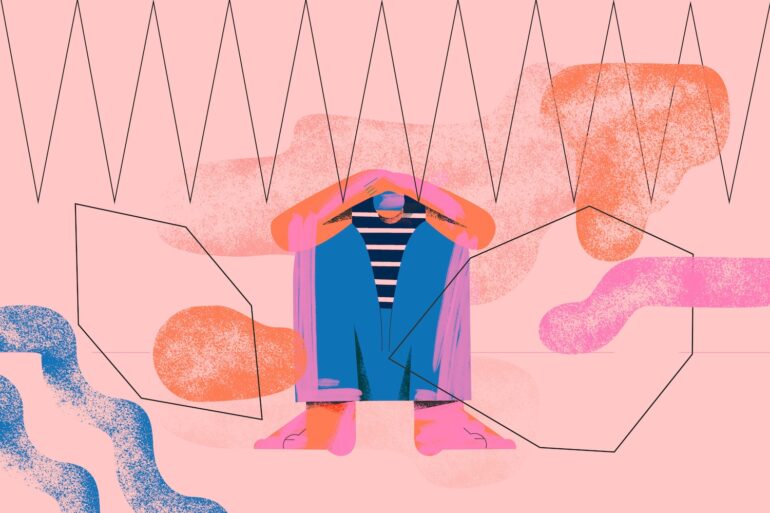Anxiety disorders affect millions of people worldwide, leading many to seek alternative treatments. One such treatment that has gained popularity in recent years is cannabidiol (CBD), a compound found in cannabis plants.
What Is CBD?
CBD is one of over 100 compounds found in the cannabis plant. Unlike tetrahydrocannabinol (THC), CBD does not produce a “high” and is not psychoactive. It interacts with the body’s endocannabinoid system (ECS), which plays a role in regulating various physiological processes, including mood, pain, and stress responses.
Potential Benefits of CBD for Anxiety
1. Reduces Stress and Anxiety Levels
Several studies suggest that CBD can help reduce anxiety levels. A review published in the journal Neurotherapeutics found that CBD may help reduce anxiety in both animal and human studies. It has shown potential in reducing symptoms of generalized anxiety disorder (GAD), social anxiety disorder (SAD), and post-traumatic stress disorder (PTSD).
2. Improves Sleep Quality
Many people with anxiety also suffer from sleep disturbances. CBD has been shown to improve sleep quality by addressing the root causes of insomnia, such as anxiety and pain. A study published in The Permanente Journal found that CBD improved sleep scores in 66.7% of patients within the first month.
3. Enhances Mood and Cognitive Function
CBD may help improve mood and cognitive function by interacting with serotonin receptors in the brain. Serotonin is a neurotransmitter that plays a key role in mood regulation. By enhancing serotonin signaling, CBD can potentially alleviate symptoms of depression and improve overall mood.
4. Minimizes Physical Symptoms of Anxiety
People with anxiety often experience physical symptoms such as increased heart rate, muscle tension, and gastrointestinal issues. CBD has anti-inflammatory and muscle-relaxant properties that can help reduce these physical symptoms, leading to a more relaxed state.
How to Use CBD for Anxiety
When considering CBD for anxiety, it’s essential to choose the right product and dosage. Here are some tips:
- Start with a low dose: Begin with a low dose and gradually increase until you find the optimal amount that works for you.
- Choose quality products: Look for CBD products that have been third-party tested for purity and potency. Full-spectrum CBD products contain other beneficial cannabinoids and terpenes that can enhance the effects of CBD.
- Consider different forms: CBD is available in various forms, including oils, capsules, edibles, and vapes. Choose a form that suits your lifestyle and preferences.
- Consult a healthcare provider: Always consult with a healthcare provider before starting any new supplement, especially if you are currently taking medications.
Potential Side Effects of CBD
1. Dry Mouth
One of the most common side effects of CBD is dry mouth. This occurs because CBD can reduce saliva production. Staying hydrated and drinking plenty of water can help alleviate this symptom.
2. Drowsiness
While CBD can help improve sleep, it can also cause drowsiness, especially at higher doses. If you experience drowsiness, consider adjusting your dosage or taking CBD at night.
3. Gastrointestinal Issues
Some people may experience gastrointestinal issues such as nausea or diarrhea when taking CBD. These side effects are usually mild and temporary but can be minimized by starting with a low dose and gradually increasing it.
4. Interactions with Medications
CBD can interact with certain medications, particularly those that are metabolized by the liver’s cytochrome P450 enzyme system. These interactions can affect the effectiveness of the medications or increase the risk of side effects. It’s crucial to consult with a healthcare provider to ensure that CBD is safe to use alongside your current medications.
Conclusion
CBD offers a promising alternative for managing anxiety, with several studies supporting its potential benefits. However, it is not without side effects, and it’s essential to approach its use with caution. By starting with a low dose, choosing quality products, and consulting with a healthcare provider, you can safely explore the benefits of CBD for anxiety.
Scientific Studies on CBD and Cannabis for Anxiety
- CBD as an anxiolytic drug
- Antidepressant-Like and Anxiolytic-Like Effects of Cannabidiol: A Chemical Compound of Cannabis Sativa
- CBD reduces the anxiety induced by simulated public speaking in treatment-naïve social phobia patients
- Neural basis of anxiolytic effects of CBD in generalized social anxiety disorder
- Central anandamide deficiency predicts stress-induced anxiety: behavioral reversal through endocannabinoid augmentation
- Effects of CBD on regional cerebral blood flow
- The anxiolytic-like effects of cannabidiol injected into the bed nucleus of the stria terminalis are mediated by 5-HT1A receptors
- The anxiolytic effect of CBD on chronically stressed mice depends on hippocampal neurogenesis: involvement of the endocannabinoid system
- Plant-based medicines for anxiety disorders, part 2
- A systematic review of plant-derived natural compounds for anxiety disorders
- The Endocannabinoid System and Anxiety
- CBD regulation of emotion and emotional memory processing: relevance for treating anxiety-related and substance abuse disorders
- Effect of prior foot shock stress and Δ9-tetrahydrocannabinol, cannabidiolic acid, and cannabidiol on anxiety-like responding in the light-dark emergence test in rats
- Effectiveness of Cannabidiol Oil for Pediatric Anxiety and Insomnia as Part of Posttraumatic Stress Disorder: A Case Report.
- CBD Does Not Dampen Responses to Emotional Stimuli in Healthy Adults
- Plasma and brain pharmacokinetic profile of CBD, CBDV, THCV and CBG in rats and mice following oral and intraperitoneal administration and CBD action on obsessive-compulsive behavior
- Cannabinoid-related agents in the treatment of anxiety disorders: current knowledge and future perspectives
- Current status and prospects for cannabidiol preparations as new therapeutic agents
References
- Substance Abuse and Mental Health Services Administration: “Cannabidiol (CBD) – Potential Harms, Side Effects, And Unknowns.”
- Mayo Clinic: “What are the benefits of CBD – and is it safe to use?” “Antidepressant withdrawal: Is there such a thing?”
- Biomolecules: “Cannabidiol: A Potential New Alternative for the Treatment of Anxiety, Depression, and Psychotic Disorders.”
- Frontiers in Immunology: “Translational Investigation of the Therapeutic Potential of Cannabidiol (CBD): Toward a New Age.”
- Neuropsychopharmacology: “Effects of Cannabidiol (CBD) on Regional Cerebral Blood Flow.”
- Frontiers in Psychology: “Anxiolytic Effects of Repeated Cannabidiol Treatment in Teenagers With Social Anxiety Disorders.”
- Journal of Clinical Psychiatry: “Cannabidiol for Treatment-Resistant Anxiety Disorders in Young People: An Open-Label Trial.”
- Communications Medicine: “Clinical and cognitive improvement following full-spectrum, high-cannabidiol treatment for anxiety: open-label data from a two-stage, phase 2 clinical trial.”
- News release, Drug Enforcement Administration.
- ClinicalTrials.gov.
- Cannabis and Cannabinoid Research: “A Cross-Sectional Study of Cannabidiol Users.”
- World Health Organization: “Cannabidiol (CBD) Critical Review Report.”
- Harvard Health Publishing: “Cannabidiol (CBD): What we know and what we don’t.”
- CDC: “CBD: What You Need to Know.”
- News release, FDA.
- FDA: “What You Need to Know (And What We’re Working to Find Out) About Products Containing Cannabis or Cannabis-derived Compounds, Including CBD.”
- Frontiers in Psychiatry: “Cannabidiol (CBD) in the Self-Treatment of Depression-Exploratory Study and a New Phenomenon of Concern for Psychiatrists.”
- Journal of General Internal Medicine: “Cannabidiol Interactions with Medications, Illicit Substances, and Alcohol: a Comprehensive Review.”

